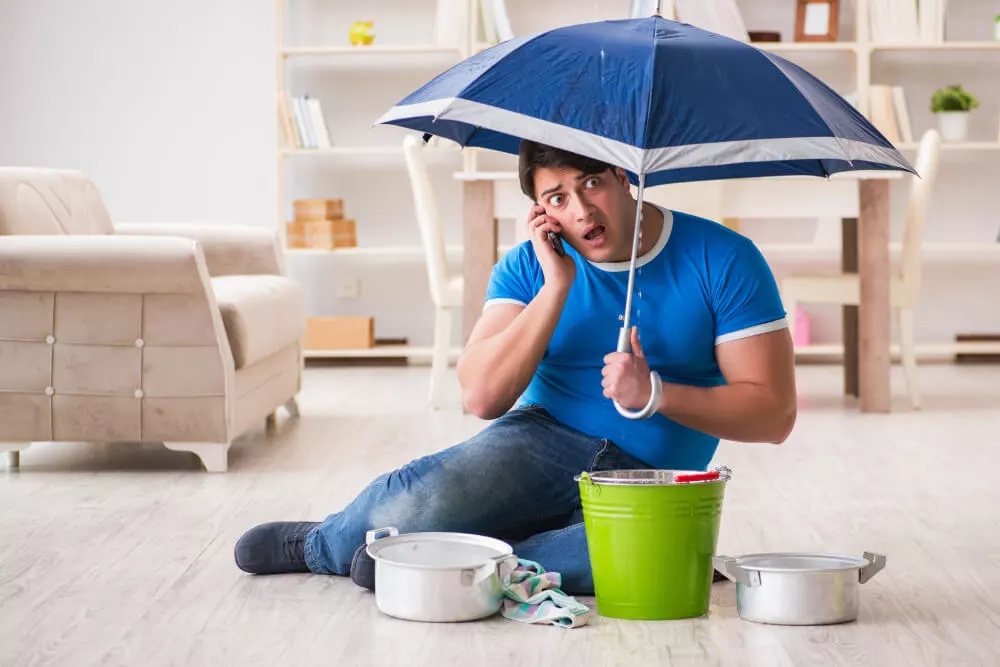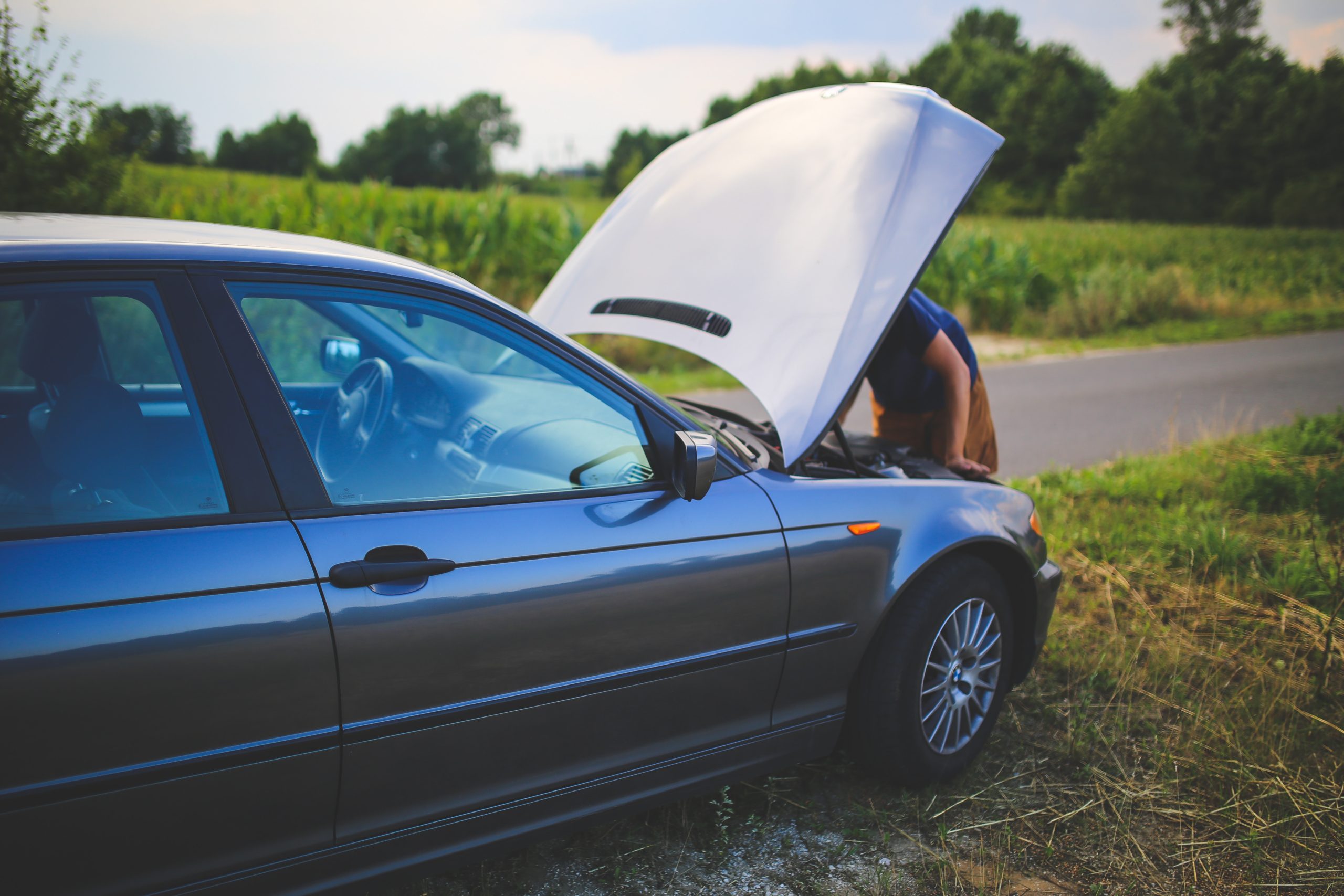
Water damage is one of the most frequently claimed types of damage on homeowners insurance policies.
According to the Insurance Services Office (ISO), water damage is the second most common insurance claim, behind wind and hail damage.
Each year, 1 in every 50 homeowners claims water damage. Unsurprisingly, people have so many questions about it.
For example, what is covered under your homeowner’s insurance policy, and why is “gradual damage” excluded?
Table of Contents
Does Home Insurance Cover Water Damage?
Water damage may be covered under your homeowner’s insurance policy in some cases but not in others.
Quentin Coolen, CEO and co-founder of Waffle Insurance, a national insurance group, says water damage is covered if it is “sudden and accidental, such as if a washing machine supply hose suddenly breaks or a pipe bursts; in your home.”
However, there are exclusions and limits on the amount of money that can be paid out.
When it comes to the water damage caused by poor home maintenance, “homeowners insurance does not cover,” says Coolen.
For example, a long-abandoned problem that has since grown into a significant issue may go unnoticed today.
A regional director at Altieri Insurance Consultants, Jason Pruitt, says some policies limit water damage to the home to $10,000.
Insurance policies cover water damage in the following situations
- Extinguishing a fire results in water damage.
- Water damage to your home caused by roof leaks
- Accidental overflows from household appliances, such as a toilet or a washing machine.
- Rain or snow can cause water damage.
- Burst pipes and frozen pipes are common plumbing problems.
Water damage that is not covered by home insurance
- Water seeping through the soil
- Backups for water
- Backups in the pipes of the sewer
- Flooding
- Lack of attention to detail
- Ordinary deterioration
- Increasing leaks over time
How do I claim for water damage?
You don’t have to be alarmed if the weather turns bad or a sink leaks. For water damage, filing an insurance claim is very similar to the process used to file for other types of damage.
Call your insurance company as soon as you can. In many cases, you must file a claim within a certain amount of time after an item is damaged.
To file a claim for water damage, call your insurance company’s claims number, which you can find on your policy.
Following the filing of a claim, take inventory and make a detailed inventory of any damaged property.
Take pictures or videos of the damage if you can. Even though it may be tempting, do not throw anything away until an insurance adjuster has inspected the damage to your property.
Before your insurance adjuster arrives, only make necessary temporary repairs. For example, you can cover a broken window with cardboard or put a bucket under a leaky roof with cardboard.
It is essential not to make any permanent repairs until your insurance company examines the situation.
Don’t let your insurance adjuster’s tour of the damage go by without you present and prepared.
You’ll want to keep a detailed list of damages and any receipts for items that need to be replaced or repaired on hand.
Have an inspector verify that the damage has been repaired. Please don’t wait until it’s too late to prevent further damage, especially when it comes to the water damage caused by a malfunctioning or broken appliance.
Avoid being denied a claim for water damage
Maintain a record of the repairs you’ve made and the people you’ve hired to help you keep your home in good shape over time.
When things go wrong, this is a good thing to have on hand. Make sure you know all of the coverages included in your policy before signing on the dotted line.
Make sure you understand the exclusions and your responsibilities as a homeowner before signing a contract.
Maintaining your home regularly is the best way to avoid unpleasant surprises. Keeping up with minor repairs will save you a lot of money in the long run.
Inquire about additional coverages that may be useful to you when purchasing insurance.
Related Question And Answer
Is a water leak covered by insurance?
Water leaks and water damage are only covered by homeowners insurance if the cause is sudden or accidental. Water damage that occurs gradually and over time is not covered by homeowners insurance. Furthermore, some homeowners’ insurance policies will cover water leak-related damages.
What kind of water damage is covered by insurance?
Under the terms of most standard homeowners insurance policies, if water damage occurs suddenly or accidentally from a source within your home, such as a burst pipe, your homeowner’s insurance will likely cover it. If the water originates outside your home, your standard policy will not cover it.
Does homeowners policy cover water damage?
Your home insurance policy should cover any unexpected or accidental water leakage in your home. If your water line breaks or any of your appliances overflow or leak, you’ll be covered under this policy, too. A hole in your house caused by storms, such as hail, wind, or rain, is also covered.
How much does it cost to fix a leaking water pipe?
An additional $100 can be added to the cost of repairing a leaky pipe, which can run from $150 to $350. There is no repair of the wall following this fix. A hole in the drywall can cost anywhere from $250 to $750 to repair.
Should I file an insurance claim for water damage?
As soon as possible, deal with any structural damage caused by a flood. Even before you begin to clean up, you should call your insurance provider. Clean up the water as soon as possible because if you wait, your claim may be denied.
How do I deal with insurance after water damage?
How to Get Insurance to Pay for Water Damage
- Determine where the water is coming from and take reasonable measures to stop it from flowing.
- Determine if water damage to your home is covered by your homeowner’s policy.
- Make a claim with your insurance company.
- Employ the services of a water damage restoration company if necessary.
What is sudden and accidental water damage?
Water damage that occurs “suddenly and accidentally” (such as a burst pipe) is usually covered, but the damage that occurs over time (such as a dripping bathroom sink) is not. Burst pipes are a common cause of water damage that is typically covered by homeowners’ insurance. A frozen burst pipe is one example of this.



